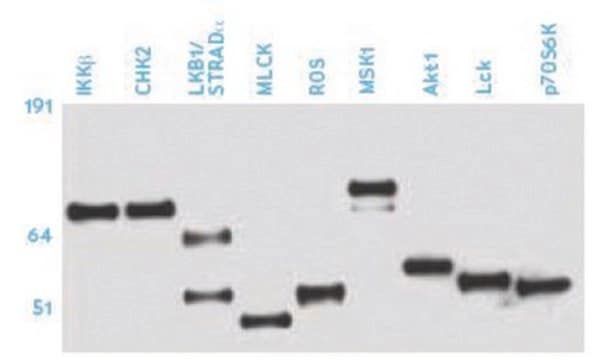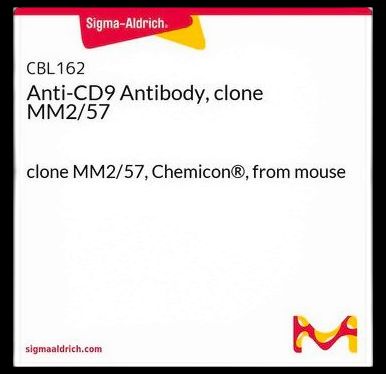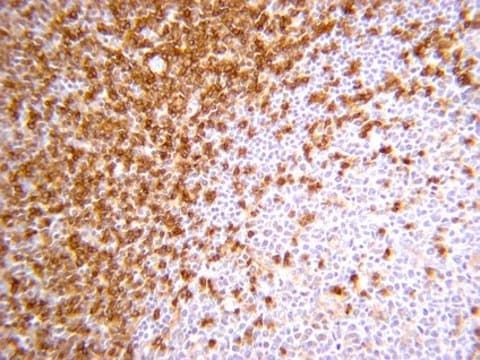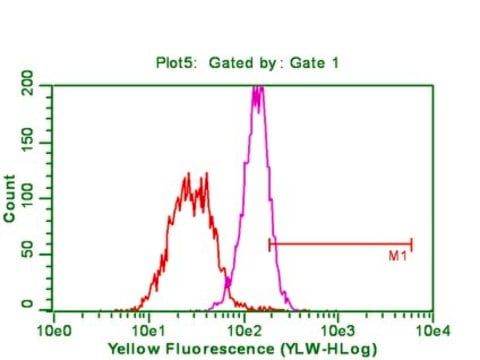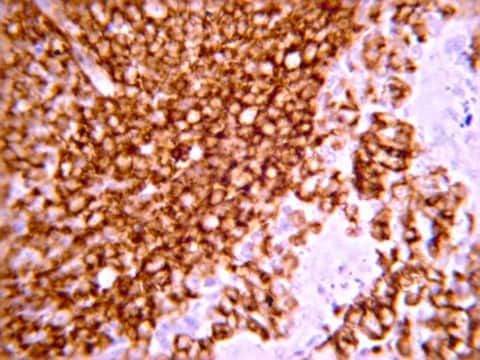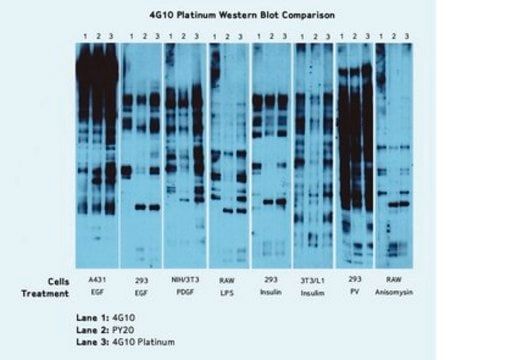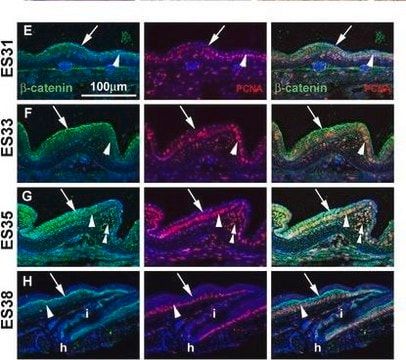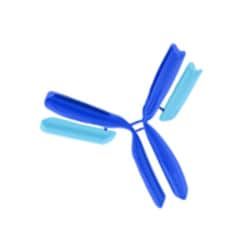CBL407
Anti-PCNA Antibody, clone PC10
clone PC10, Chemicon®, from mouse
Manufacturer: Sigma Aldrich
Synonym(S): Proliferating Cell Nuclear Antigen, DNA Polymerase delta Processivity Factor
Select a Size
| Pack Size | SKU | Availability | Price |
|---|---|---|---|
| 100 μG | CBL407-100-μG | In Stock | ₹ 35,020.01 |
CBL407 - 100 μG
In Stock
Quantity
1
Base Price: ₹ 35,020.01
GST (18%): ₹ 6,303.602
Total Price: ₹ 41,323.612
biological source
mouse
Quality Level
100
antibody form
purified antibody
antibody product type
primary antibodies
clone
PC10, monoclonal
species reactivity
vertebrates, invertebrates
manufacturer/tradename
Chemicon®
technique(s)
ELISA: suitableflow cytometry: suitableimmunohistochemistry: suitable (paraffin)immunoprecipitation (IP): suitablewestern blot: suitable
isotype
IgG2a
NCBI accession no.
NM_022381.3
Description
- General description: Proliferating cell nuclear antigen (UniProt: P04961; also known as PCNA) is encoded by the Pcna gene (Gene ID: 25737) in rat. PCNA is a homotrimeric nuclear protein that serves as an auxiliary protein of DNA polymerase delta and is involved in the control of eukaryotic DNA replication by increasing the polymerase′s processability during elongation of the leading strand. It Induces a robust stimulatory effect on the 3′-5′ exonuclease and 3′-phosphodiesterase, but not apurinic-apyrimidinic (AP) endonuclease, APEX2 activities. It is reported to colocalize with CREBBP, EP300 and POLD1 to sites of DNA damage. It acts as a loading platform to recruit DDR proteins that allow completion of DNA replication after DNA damage and promote post-replication repair. PCNA can undergo phosphorylation on tyrosine 211 by EGFR that stabilizes chromatin-associated PCNA. Following DNA damage, it can undergo monoubiquitination to stimulate direct bypass of DNA lesions by specialized DNA polymerases or polyubiquitination to promote recombination-dependent DNA synthesis across DNA lesions by template switching mechanisms. Mutations in PCN gene are known to cause Ataxia-telangiectasia-like disorder 2 (ATLD2) that is characterized by developmental delay, ataxia, hearing loss, and short stature.
- Specificity: Clone PC10 recognizes PCNA from all vertebrate and insect species tested and has been used to identify transformed cells (Kurki, 1988), proliferating cells in solid tumors (Smetana, 1983), and blast cells in leukemia patients (Takasaki, 1984). Immunohistochemistry with clone PC10 has been used to study the expression of PCNA in paraffin sections of normal tissues and lymphoid neoplasms (Hall, 1990). In proliferating cells, PCNA staining pattern is predominantly nuclear. By western blot, the antibody detects a polypeptide migrating at 36 kDa with an isoelectric point of 4.8.
- Immunogen: Rat PCNA induced in the Protein A expression vector pR1T2T.
- Application: Anti-PCNA Antibody, clone PC10 is a mouse monoclonal antibody for detection of PCNA also known as Proliferating Cell Nuclear Antigen, DNA Polymerase delta Processivity Factor & has been validated in ELISA, FC, IP, WB,IHC(P).
- Physical form: Format: Purified
- Storage and Stability: For use within 1 month of purchase store at +4°C, for long term storage aliquot antibody into small volumes and store at -20°C. Avoid repeated freeze/ thawing.
- Analysis Note: ControlPOSITIVE CONTROL: Tonsil or reactive lymph node.
- Other Notes: Concentration: Please refer to the Certificate of Analysis for the lot-specific concentration.
- Legal Information: CHEMICON is a registered trademark of Merck KGaA, Darmstadt, Germany
- Disclaimer: Unless otherwise stated in our catalog or other company documentation accompanying the product(s), our products are intended for research use only and are not to be used for any other purpose, which includes but is not limited to, unauthorized commercial uses, in vitro diagnostic uses, ex vivo or in vivo therapeutic uses or any type of consumption or application to humans or animals.
SAFETY INFORMATION
WGK
WGK 2
Flash Point(F)
Not applicable
Flash Point(C)
Not applicable
Compare Similar Items
Show Difference
biological source: mouse
Quality Level: 100
antibody form: purified antibody
antibody product type: primary antibodies
clone: PC10, monoclonal
species reactivity: vertebrates, invertebrates
manufacturer/tradename: Chemicon®
technique(s): ELISA: suitableflow cytometry: suitableimmunohistochemistry: suitable (paraffin)immunoprecipitation (IP): suitablewestern blot: suitable
isotype: IgG2a
NCBI accession no.: NM_022381.3
biological source:
mouse
Quality Level:
100
antibody form:
purified antibody
antibody product type:
primary antibodies
clone:
PC10, monoclonal
species reactivity:
vertebrates, invertebrates
manufacturer/tradename:
Chemicon®
technique(s):
ELISA: suitableflow cytometry: suitableimmunohistochemistry: suitable (paraffin)immunoprecipitation (IP): suitablewestern blot: suitable
isotype:
IgG2a
NCBI accession no.:
NM_022381.3
